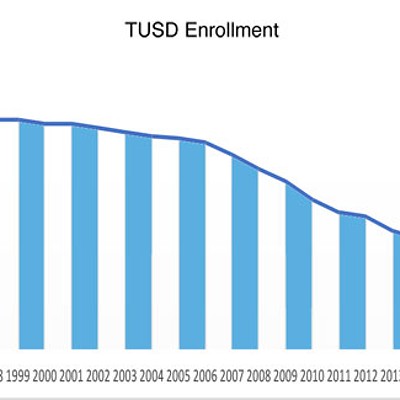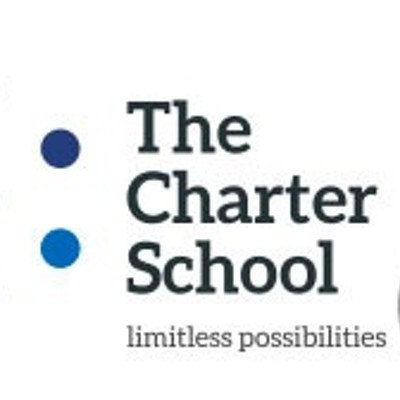In an effort to avoid raising taxes in the face of a budget deficit of more than $2 billion, Republicans in the Arizona Legislature cut more than a billion dollars in state spending last week.
Allowing only one day for testimony regarding the budget bills in both the House and the Senate appropriation committees, GOP lawmakers eliminated state support for all-day kindergarten, took away health insurance from more than 300,000 Arizonans below the federal poverty level and eliminated the KidsCare program that provided health-care coverage for children.
State support for people with developmental disabilities and mental illnesses has been cut back, with an estimated 14,600 seriously mentally ill adults and 4,200 children losing their assistance.
The state's GED and adult-education programs have been eliminated, as have dropout-prevention programs and AIMS intervention tutoring.
The State Parks Department, which has already had so much money swept from its gate fees and other funding sources that it is in the process of closing at least 13 parks, is losing $10 million in Heritage Fund dollars that come from the Arizona Lottery. Nearly $10 million that was in an Arizona Commission on the Arts endowment has been snatched away, and general-fund support for the Department of Tourism has been zeroed out.
The budget was negotiated between Republican lawmakers and Republican Gov. Jan Brewer, who is expected to sign it.
"It's a bloodbath," says Rep. Steve Farley, a Democrat who represents midtown Tucson.
But Brewer spokesman Paul Senseman says the Democrats failed to offer a viable alternative to the cuts.
"For those elected officials who criticize (others), at least have the courage, like the governor, to offer a complete and realistic proposal," Senseman says.
Many of the programs that have been zeroed out will cost the state economy billions of dollars in federal matching funds and grants.
Take the health-care cuts. Arizona is now the only state in the country that doesn't have a KidsCare program. Although the program, which provided health-care coverage to roughly 63,000 kids in households up to 200 percent of the federal poverty level, cost the state $23 million, but it was accompanied by a 3-to-1 match that brought $96.5 million in federal dollars, according to an Arizona State University study commissioned by the Arizona Hospital and Healthcare Association.
Rather than simply suspend the KidsCare program, GOP lawmakers eliminated it completely, making it that much more difficult to bring back if Arizona's economy improves.
However, Senate President Bob Burns says that there's not much of a difference between eliminating the program and suspending it.
"It's six of one, a half-dozen of another," Burns says. "It's a message of how critical the situation is. ... The economy is going to have to make a tremendous comeback before we start reinstituting programs."
Lawmakers also cut $385 million in funding that provided health insurance for households below the federal poverty line, which is $18,310 for a family of three. The cuts are expected to leave roughly 310,000 without insurance after Jan. 1, 2011; lawmakers were unable to cut off the insurance coverage sooner, because the state accepted stimulus funds that required that the program be continued through the end of the year.
The ASU study notes that AHCCCS cuts may save the state $767 million, but Arizona stands to lose as much as $1.5 billion in federal matching funds.
The combined health-care cuts could cost Arizona as nearly 20,000 health-care jobs and an additional 22,400 jobs in industries that rely on health-care spending, according to the study.
The Arizona Chamber of Commerce and Industry opposed the cuts, saying that they would increase financial pressures on hospitals, which would force them to raise prices on private insurance companies. That, in turn, will mean higher health-insurance rates for private businesses and their employees.
But Burns, who believes that raising any taxes would have more of a negative effect on the economy than losing out on more than $1.5 billion in federal health-care dollars, says the state simply couldn't afford to provide funding for AHCCCS.
"We can't spend what we don't have," says Burns. "The choices were education and health care, because to even get us close to being balanced, we had to go where the money was, and the money is in education and health care."
The cuts were made even though last week, the U.S. Senate passed a bill that would provide federal dollars to pay for most of the insurance coverage through July 1, 2012. Burns says the coverage may be restored in the future if President Barack Obama signs the legislation.
"Nothing is ever sure about Washington (D.C.)," Burns says. "We could not wait."
It remains to be seen if AHCCCS cuts are even legal, because the coverage was expanded by voters, and lawmakers are prohibited from tampering with voter-approved measures.
Fountain Hills Republican John Kavanagh, who heads up the House Appropriations Committee, says that the initiative only insisted that coverage would be extended using "available funds."
"There are no available funds," Kavanagh says.
That's not the only shaky part of the budget. Lawmakers are also counting on voters to agree to zero out two voter-approved initiatives and divert those funds into the general fund.
One fund is First Things First, established by voters in 2006. First Things First, which is funded by an 80-cent tax on every pack of cigarettes, has about $325 million in the bank right now.
First Things First was created with the idea that Arizona lawmakers weren't likely to spend general-fund dollars on programs for early-childhood education and other programs for young children. So supporters of those programs funded a campaign to raise the tobacco tax, with the money going to regional councils across the state to provide programs for early-childhood programs. (See "First Things First?" Currents, March 11.)
While some grants have been handed out, the general idea was to allow the funds to build up for future disbursements.
But GOP lawmakers say that letting the money build for future programs doesn't make sense when the state has pressing needs—and they turned down offers from First Things First officials to accept a loan from the fund rather than raiding it outright.
Instead, lawmakers want voters to crack it open in November and give them control of the tobacco-tax dollars forever into the future. If voters refuse to give them the funds, then lawmakers are promising to make deeper cuts elsewhere.
It's a similar story with Growing Smarter fund, which was set aside by a vote in 1998. That money—about $123.5 million—was supposed to match local contributions so that state trust land could be set aside for conservation and recreation. The program has been beset by legal troubles that made using the funds a challenge, but Pima County recently tapped the funds to purchase Tumamoc Hill west of downtown.
If voters don't accept the sweep of those funds, additional cuts of $450 million will be necessary.
All the above cuts assume that the sales tax that voters will decide on May 18 will pass.
If it does not, the budget will have another $918 million hole that lawmakers are already promising to fill with even deeper cuts.
The bad news doesn't end there. Burns warns that even after all of these cuts to government, the state will still have a billion-dollar structural deficit, even if voters approve the sales tax in May.
In addition, the state has run up an alarming amount of debt in recent years.
"The debt service is now becoming a major component of the budget," Burns says.
Despite all that, some Republican lawmakers are still pushing for yet more tax cuts, which would make the structural deficit even worse.
The Arizona Economic and Job Recovery Act, which passed the House of Representatives last month, contains a number of tax cuts, including a 10 percent income-tax cut whose benefits would go overwhelmingly to Arizona's wealthiest residents, even as its poorest citizens are losing health insurance and other services.
The tax-cut package would also reduce corporate taxes and slash business property taxes, while hiking property taxes on homeowners.
The Joint Legislative Budget Committee estimates that the tax cuts would cost the state $171 million in fiscal year 2012, and $941 million when fully implemented in 2017. Although Republican supporters of the plan, such as state Sen. Frank Antenori, argue that the cuts would spur the economy, JLBC staffers estimate that, at best, any new economic boost would return 18 cents of new revenue for every dollar that the state cuts.
Burns says the Senate will begin work on the tax-cut package now that the budget work is done, but he says it probably won't pass without some changes.
"We haven't had an opportunity in the Senate to review that legislation at this point," says Burns.















